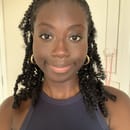Reading books is a wonderful way to escape reality, learn new things, and broaden our horizons. Whether it’s before bed, during a journey, or in our free time, a good book can transport us to another world and teach us something new. I have compiled a list of fiction and non-fiction books that I believe are not only entertaining but also valuable in helping us expand our cultural knowledge. This selection includes an interesting selection that I’m eager to read! I hope you find them just as engaging!
1. Chavs: The Demonization of the Working Class by Owen Jones
This book delves into how the working class is presented in the media. How have individuals been seen as relatable, fun, and likeable characters, to then the ‘scum of the earth’? Jones outlines the geographical and political frameworks of the environmentally disadvantaged White working-class residents. To tackle class inequality for all ethnic groups, it is important to be aware of the disparities that are among us. There is more incentive for the government to fuel things such as infrastructure and gentrification, but rarely for the good of the people who live within the United Kingdom. Reading non-fiction is just as important as reading fiction, as it allows us to be culturally and socially aware. If there is demonetisation towards a group with its ethnicity being the largest in the country, what is then the basis of Britain being supposed ‘as one’?
2. Open Water – Caleb Azumah Nelson
Open Water is about two lovers who go through and share their past tumultuous experiences of being Black. Both are Black British, both won scholarships to private schools where they struggled to belong, and both are now artists – he a photographer, she a dancer – trying to make their mark in a city that takes its turn to celebrate and reject them. Two people who seem destined to be together can still be torn apart by fear and violence. The reviews of this book signal the beautiful prose and literature that never leaves the readers. There is sheer beauty established, described, and illustrated between the relationships throughout the novel that makes me ever so eager to get stuck into it. As it is written in the 2nd person, it brings a new perspective to contemporary fiction – It feels as if you are reading a love letter or witnessing vows at a wedding, therefore experiencing an immersive escapade.
3. The Things that We Lost – Jyoti Patel
As his father and grandfather have both passed away, the main character Nik finds the opportunity to ask about the secrets his mother has been withholding from him ever since. Once the truth emerges, the mother and son both separate, but will they reunite once more? The book explores the themes of family, grief, and the lengths to which we go to protect the ones we love. I chose this book because grief affects all of us in different ways. There is no rulebook on how to experience it and the effects on familial dynamics are always tugged on. Asian representation in contemporary literature is something that I would love to read as well as I have been enjoying reading books foregrounding Black representation.
4. Hood Feminism: Notes from the Women That a Movement Forgot – Mikki Kendall
Kendall argues that mainstream feminism often overlooks basic needs like food security, quality education, safe neighbourhoods, a living wage, and medical care, focusing instead on increasing privilege for a few. This stated neglect emphasises an internal conflict and alienates women who resist the feminist label. Kendall also points out that many White feminists fail to consider how race, class, sexual orientation, and ability intersect with gender, potentially leading to oppression within the movement. I believe that Hood Feminism will be an important read because there are so many systemic factors that Black women experience in our society.
I’m hoping these books will provide me with a much-needed break from my studies as they offer a wide range of themes I’m eager to explore!


